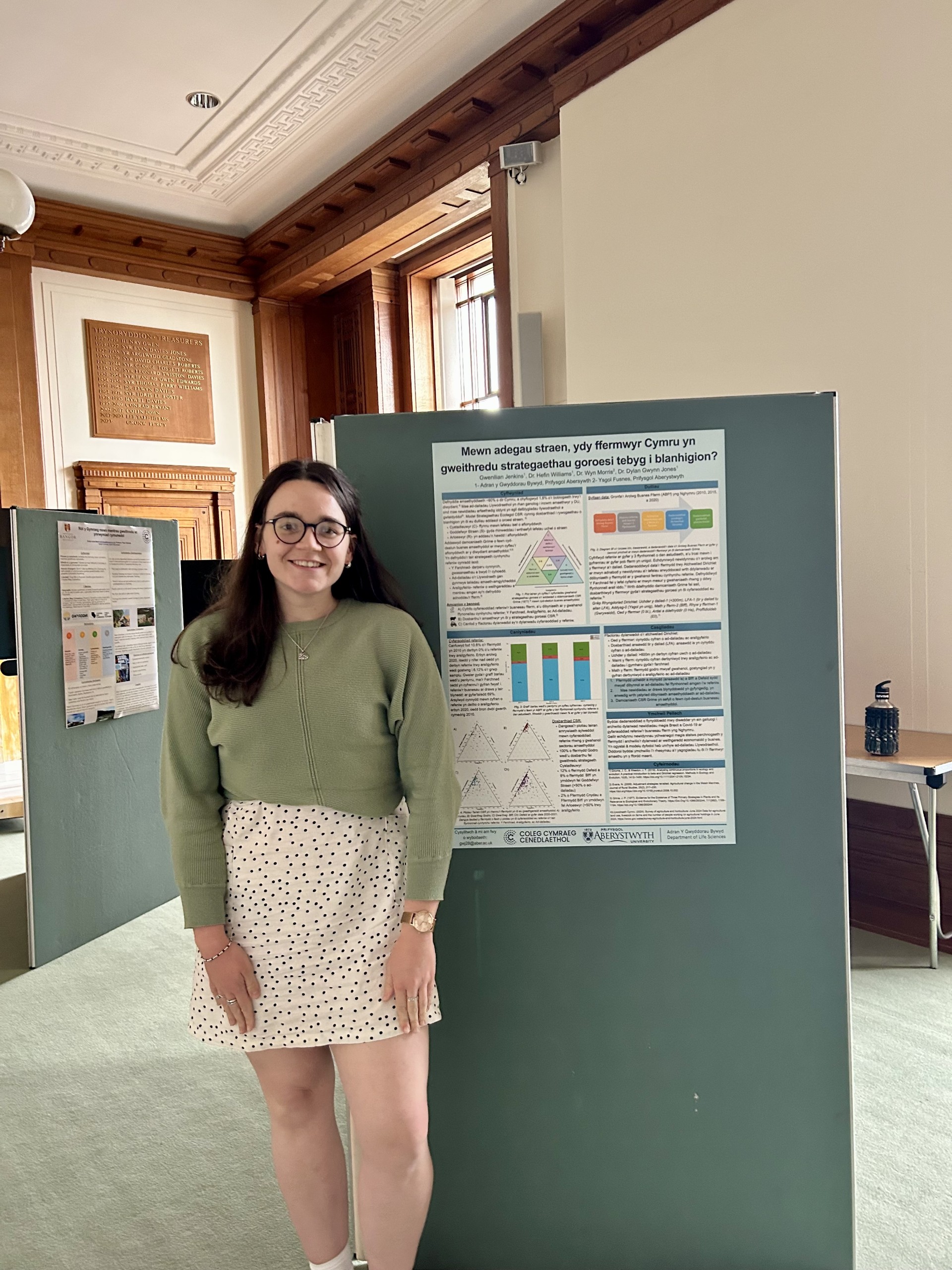Science through the medium of Welsh: Gwenllian Jenkins

Gwenllian Jenkins presenting a poster of her research at the Coleg Cymraeg Cenedlaethol Conference in June 2025
11 July 2025
It’s often a strange concept to connect the Welsh language with the sciences, but my experience is the opposite of this. I was encouraged to study through Welsh during my undergraduate degree despite not having studied the sciences in the language before. And looking back now, I am so glad that I studied through the medium of Welsh.
At the start, it was difficult to think about discussing scientific concepts let alone presenting academic work in Welsh. But through the help of the lecturers, I felt much more confident doing these things in my mother tongue than ever. All of a sudden, communicating science was easier because I was so comfortable with the language in the first place. And I am well aware, that studying through the medium of Welsh opened the door for me to study for my PhD. It is still difficult to find the right key terms, but I am now far more aware of the fantastic resources available to help me with this.
Choosing to use the Welsh language in the field of Biology has opened my eyes to the range of research that takes place here. The language is at the heart of interesting research, with Welsh words appearing in several exciting discoveries! With a species of anaerobic fungus called Buwchfawromyces eastonii discovered within buffalo faeces by scientists and our lecturers from Aberystwyth University. As well as Myxococcus llanfairpwllgwyngyllgogerychwyrndroblllllantysiliogogogochensis; which is a species of myxobacteria that lives in the soil around the area. This is apparently the longest name ever for a species according to binomial nomenclature!
The support to study the sciences in the language is increasing. The Edward Llwyd Federation is a perfect example of promoting interest and knowledge within the environmental sciences through the Welsh language (and even one of our buildings in the department is named after the Welsh botanist!). The language weaves itself perfectly as a basis for good quality academic work and research. With our scientists already leading the way, with further encouragement who knows what Welsh scientists of the future will discover!
The aim of my PhD research is to explore how farmers in Wales generate revenue for their businesses, using data from the Farm Business Survey. By analysing both economic and personal data for individual farms and farmers, I have been able to calculate the value of different enterprises within each business. My goal is to understand how revenue generation strategies have evolved over time and to examine how the profile of a farm influences its revenue composition and, in turn, its business strategy. I focus specifically on three key sources of income: market sales, diversification, and government subsidies.
